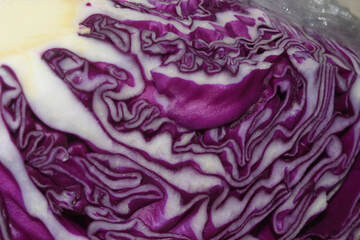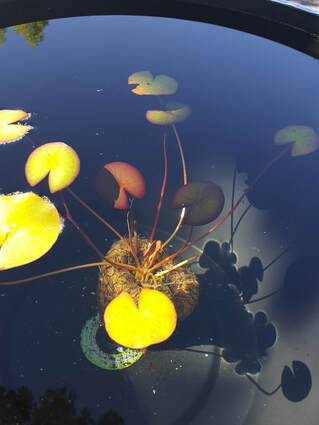|
5/30/2024 0 Comments Your Mind, Your Possessions A couple of weeks ago, I ended a 10-day silent retreat up in the Santa Cruz mountains. It was a powerful experience living from one bag, rotating 4 outfits, and discovering life's simplicity. In addition to living with less, being in silence showed me how often speaking can be simply another form of entertainment and even a distraction. An underlying theme of this retreat’s teachings was getting to know the things that disturb your peace of mind. We may not consciously grasp how we view our interactions, our relationships with others and ourselves, and our possessions as things that can unsettle our calm. Peace of mind is interdependent with our relationship to people and things. Unhappy relationships create unhappy minds and vice versa. Less obvious, though, may be the impact possessions have on one’s state of mind. Caught in the Cycle Years ago, I read a shocking statistic. A typical American family owns about 300,000 items (L A Times 2014 ). According to information from a 2015 Time article, US children comprise 3.1% of the world’s kid population, but their families buy more than 40% of global toy purchases. When the average US family moves, their possessions weigh about 8000lb, which is 4 tons! Younger people are also no longer saving but are spending about $18000 a year on nonessential items according to USA Today. So . . . The items in and of themselves aren’t the problem. As the above statistics glaringly illustrate, owning too much is the problem. Obviously for our survival and comfort we need to possess things. When it becomes excessive, then we’ve slipped into the problem zone. Like when you are enjoying a piece of cake, you may be able to eat 1 or 2 slices and still experience pleasure, but if you were to continue eating you would become sick. Enough is pleasurable and good. The retreat leader isolated the problem to how our minds relate to our possessions. He said more valuable, pricey, and coveted items create much greater stress. In as much as we obsess, worry, and fear that some damage, destruction, or loss may befall our coveted items, to that degree our mind will be distressed. Backing up his argument is UCLA anthropologist Elinor Ochs who says that the objects we bring into our homes aren’t inert. Her decade long research shows that homes with too much stuff cause greater anxiety. From the retreat teacher’s years of experience, he advised buying those things that are second best or NOT top of the line; in that way if they were to get damaged or lost you are less perturbed. Interrupting the Process We have become more acquisitive because things are so much more easily available. Same day delivery and instantaneous one click purchasing deprive us of the time and space to reflect on whether we actually need it. So it has become harder to interrupt this hyper-purchasing process with questions like, “Do I need this?” “Where will I wear this?” “Is there space for this item?” The way to break the cycle is to begin to notice what happens in your mind and emotions when you are desiring something. A mind filled with longing for something is unable to see clearly; its singular focus is the object of desire. This mind exaggerates all the good qualities of the object and completely disregards anything contrary. Sleep is disrupted; thinking is skewed. It fixates on when I have this item or person (usually something external to yourself) only then will I be satisfied or happy. Clearly this is a tormented mind. Most cruel is realizing after you possess the coveted object or person, that satisfaction and pleasure are short lived. Before long your mind will be craving for something else. The process is fueled by a barrage of advertising promising the latest cure, look, status, panacea; these are designed to trigger your desire and habit of buying. Cornell University professor Thomas Gilovich notes that our happy memories are longer lasting than our possessions, which we eventually grow accustomed to and overlook. So the next time you are getting ready to click “Buy Now” or “Place your Order” remind yourself that happiness doesn’t come from our possessions, but from our experience of enjoying and being with loved ones. May you find peace of mind in simplicity.
0 Comments
3/29/2024 0 Comments Reframing Negative Thoughts Our thoughts, feelings, and behavior are linked and affect each other. If we aren’t aware of this continuous interdependence, we can become stuck in a vicious cycle of thinking negative thoughts, feeling uncontrolled emotions, increasing dark thoughts, and being unskillful in our actions and interactions. Negative thinking can become so much a part of ourselves that we may not be able to recognize it as unhelpful. Every past negative experience leaves a trace on our brains; when we are in similar situations in the present, these experiences will quickly reactivate. This cycle becomes reinforced every time this happens. Rick Hanson, psychologist and author of Buddha’s Brain says, “Our brains detect negative information faster than positive ones which means the brain is drawn to bad news.” Consequently, avoidance is programed into our brain because, over our evolution, negative experiences impacted our survival more than positive ones. Some people cope by trying to avoid negative situations, but this isn’t realistic. Many, if not most, situations in life are beyond our ability to control. As much as we aren’t able to control external circumstances, we are, however, able to control our response to them. For instance, two people may experience the same challenging situation, but one is able to feel the stress and quickly recover, while the other may struggle during the incident and agonize long afterwards from the impact of it. The difference isn’t the situation, but how they think about it. So what is negative thinking? Destructive thinking is only seeing the negative side of situations, ignoring good things that happen; expecting the worst; not being able to see things as neutral, but only in black and white terms; and believing you are the cause of problems. However, we don’t have to be at the mercy of negative thinking. This process can be disrupted. In mindfulness terminology, the first step is to create a gap between your thoughts, speech, and physical action. Essentially this means taking time or creating a space between the provocation (incident/trigger) and response (your thoughts/actions/feelings/words). In other words, we first need to stop reacting. Then the second step is to challenge unhelpful thoughts. See if you can find evidence that supports them. Usually we’d have the thought, accept it, feel bad, then either binge eat, complain, or get into an altercation. This time examine the thought. If you are worried, ask yourself is the outcome likely? What evidence do you have to support it? Could there be another possible explanation? Can you look at the situation from a different perspective? Third, replace unhelpful thoughts with positive ones. Thinking positively isn’t about ignoring things not working, but about prioritizing the things that are working. This ability to reframe our negative thoughts (form a new perspective) about situations, people, and life experiences is instrumental in helping reduce stress and anxiety and create greater happiness in life. Halt unhelpful rumination with opposite thoughts like: I can do it. I’m ready. I’m worthy. I’ve had previous experiences and come out okay. I won’t be a failure because I can handle the stress, pressure, or disapproval. Also record your negative thoughts and the challenges to them. You’ll be able to use this in the future. Reframing negative thoughts is about being flexible, noticing the thoughts and reactions as they arise in the present moment, identifying and separating from them, and reinforcing positive thoughts. It won’t all happen on your first attempt, but you can definitely begin to master this process with practice. The effort and mindfulness that this practice requires will be worth it in the long run, as it will keep you from spiraling in negativity, and help you see that things aren’t as bad as they appear. May a new perspective help you live with positivity.  A new year has begun. Beginning anew is a powerful way of letting go of past baggage. Healing can happen at many levels; forgiveness is an especially effective way of both shedding the past and reclaiming your future. Being stuck in dead end or abusive relationships or jobs, in recriminations, ruminations, and grudges is depleting. We may not always tie together our resentment, rage, or upset with our inability to achieve the life we envision for ourselves. Even the success, dreams, or goals we wish to manifest in our life, no matter how hard we may strive, will not easily bear fruit, if at all. When our energies are scattered or trapped in destructive emotional patterns of resentment, rage, fear, shame, hurt, and disappointment, then not all of our powerful mind is fully present and focused on the path that leads to our goals. We are energetically split apart. Think of a laser: it has a focused concentrated point of light that can cut through most anything. Compare it to a flashlight with its dispersed diffused light with no single focal point. If we are holding onto grudges from past hurts then we are like the reflected flashlight trying to sharply focus on our goal. We need to become like the laser. If your goal in this New Year is to regain your energy, personal power, and wellbeing, then forgiving those we may have harmed, the harm we’ve done to ourselves, and the harm others may have done to us is necessary. Forgiving does not condone, or require you to remain in contact with the person who harmed you. Some of the people may no longer be alive. So this process is for yourself ultimately. Resentment is like carrying a burning hot coal in your bare hand; you may be getting ready to hurl it at the person you blame, but in the meantime your hand is burning. As you embark on this journey do so from a place of kindness and compassion for yourself; this means take as long as you need and do only what you are able to do. You’ll go through stages that resemble the grieving process: denial, anger, bargaining, depression, and acceptance. Seek help, if you need. *** Guided Meditation (adapted from Jack Kornfield’s Forgiveness Meditation) Try using this meditation to get you started on your healing recovery. You could record yourself reading it, and then do the meditation. Get comfortable. Close your eyes, breathe naturally and easily. PAUSE Anchor your body by noticing the strength and solidity that the earth is providing for you. Feel yourself and the earth become anchored to each other. Feel and know that you are being held and that you are safe. PAUSE Move your awareness to your heart area, and begin gently breathing into your heart. Feel all the emotions – sadness, anger, resentment, disappointment, blame, impulsive/compulsive urges – notice how trapped you feel by the barriers you have erected because you haven’t forgiven yourself or others. PAUSE Gently breathe and allow yourself to fully feel this pain. PAUSE Whatever physical, mental, emotional reactions arise like tears or tension, simply notice. Try not to suppress anything. (But remember to go at your own pace). Now breathing softly begin asking for and extending forgiveness. Repeat the following words, allow images and feelings to arise and to take you deeper into releasing and letting go of the pain. Forgiving others whom you’ve harmed: Think: I’ve hurt and harmed others, betrayed or abandoned them, knowingly or unknowingly caused them suffering, because I was in pain, anger, fear, and confusion. Recall situations where you’ve done this. See the people in pain, and feel the pain. Feel your own sorrow and regret for having done this. Feel that you are ready to become free of this pain. Looking at the people in your mind’s eye, repeat “For the many ways I have hurt, embarrassed, and shamed you, I ask for your forgiveness, I ask for your forgiveness” LONGER PAUSE Forgiving yourself: Think: I have hurt and harmed myself. Consciously and unconsciously I have betrayed and abandoned myself many times through my thoughts, actions, and speech. Connect to your body. Move your awareness into your heart area or belly area. Now remember specific times when you let yourself down. Feel the sorrow you carry within. Sense that you are ready to let go of it. Quietly repeat to yourself: “For every time I hurt myself through action or inaction, out of confusion and pain, I forgive myself, I forgive myself” LONGER PAUSE Forgiving Others who have Harmed you: Think: I have been abused, rejected, and abandoned by others through their deeds, words, and thoughts. Bring to mind the times you’ve been insulted, shamed, and wounded. Feel the pain and sadness from those incidents. Sense that the time has come to release this painful burden and extend forgiveness, so you can free your own heart. Say “I remember the many ways I’ve been wounded by others. I don’t want to carry this pain any longer. I’m ready to forgive as much as I’m able to at this time. To those who have harmed me, I forgive you, I forgive you.” LONGER PAUSE Now notice if you are experiencing any new feelings of warmth, relaxation, relief, or lightness. If not, gently connect with the tightness in your heart and forgive yourself for NOT being ready to move on. Forgiveness can’t be forced or rushed. *** If you persist in this practice, over time you’ll begin to feel more hopeful, energetic, greater compassion for yourself and others, more confident and peaceful. May you release your pain to start anew. 9/19/2023 0 Comments Being Embodied; Being Present Being in our bodies may be a foreign concept to some of us. Most people normally reside in and function from their heads, and they mindlessly follow every thought that flits into their minds. Needless to say, their subtler body signals may go completely unnoticed. On the other hand, being in the body means moving awareness into and regularly connecting with the physical being. Why does this matter? Our ”bodies” are more than just muscle and bone structure; they're also comprised of emotional, energetic, and spiritual layers. Being embodied allows us to access these different levels of wisdom knowledge and to not rely solely on mentally derived information. This doesn’t mean neglecting or repressing our thoughts. Equal access to both rational thoughts and the body’s intuition is important; this is living in a balanced way. The mind and body powerfully influence each other: if our shoulders are tense, then our minds will be in tight and vice versa. When we are sad our bodies feel heavy and listless, when we are anxious the body feels jittery and tense, when we are happy the body feels light and buoyant. The body communicates through sensations, intuition or gut feelings, and grosser physical signals like hunger, thirst, or fatigue. We all heed hunger and thirst pangs, but we struggle with listening to our need for rest and self-care. For countless reasons like guilt, busyness, ambition, and childhood conditioning, we overwork and deny the body the rest it is demanding. Another example of not listening to our bodies is overtraining or pushing our bodies beyond their abilities. At the other extreme, people exhaust and weaken their bodies by starving themselves through hardcore dieting. The issue with not listening to our bodies is that we are only living from one aspect of our being, so we are living limited lives. The disconnect between body and mind is one of the ways we lose connection to the present; we become mindless, and our capacity to function as a whole being decreases. Consequently this lack of embodiment may cause us to feel untethered and adrift in a sea of endless thoughts, worries, anger, and fears. We may struggle to actualize and manifest our dreams or wishes precisely because we don’t feel anchored. In fact, being in the body is a form of meditation. The body, with its vast network of intuitive wisdom, has much to offer for living a balanced life. Moving awareness out of the head and into the core of the body (center of gravity) provides a powerful shift in perspective, actively grounds the body, and stabilizes and centers the mind in the body. The benefits of anchoring in your body are that you will be more relaxed, be able to access the body’s wisdom, feel a greater sense of peace, feel more energized, and you will be more aware of what’s happening in and around you. You will know, without the overlay of the mind’s narration and judgment, how your body feels, how depleted or energized you are, how you are breathing. Breath is the anchor to the body and the present moment. Remaining aware of body and breath will connect you to your emotions, and will make you less reactive and more peaceful. Techniques for Connecting to your Body Visualize that the base of your spine extends like a cord all the way deep into the earth. Feel yourself taking root and becoming centered and grounded. Visualize all your tension - mental, physical, and emotional - exiting through this cord into the earth. See it being transformed into healing energy. And now in the opposite direction feel the earth’s stabilizing, centering, and anchoring energy flowing up through the cord and into your body. You may feel a tingling, pulsing, warming, or cooling sensation. Relax deeply for a few minutes as your mind and body become still and centered. Another way to check in with your body’s intuition is to put your hand on your heart/chest when you are anxious or distressed. This simple action will release feel-good hormones and chemicals, and will regulate emotions. It's is also an act of self-compassion. Use your senses to connect you to your physical body and environment. Notice shapes, colors, sizes, textures and tastes. Feel the sensations of tingling, aching, warmth, and the rise and fall of your breath to connect to your energetic body. With your awareness in your body, pay attention to the sensation, thoughts, and feelings that arise in you. Without judgement or trying to change anything, create a space for them to just be. Simply notice and be welcoming of all that arises. May these simple but effective practices help you find peace and wisdom. 8/29/2023 0 Comments Becoming a Mindful Eater Eating, in spite of its ‘ordinariness’, can become a transformative activity. Food and eating have many connotations associated with them. Some people process their emotions in relation to food. They may starve themselves through bulimia or anexoria nervosa, or hoard and gorge themselves to feel secure and seen. Influencer types are compelled to eat in fancy fad restaurants so they can create a sensation. Millions around the world face daily food insecurity. Equal and fair access to healthy food is a pressing social justice issue. So food has far-reaching tentacles of complexity. On a personal level we can approach food, our meal preparation, and eating with a sense of respect, responsibility, and mindful presence. In this way an everyday activity can become an affirming and uplifting experience. Most of us rarely eat when we are hungry. Our habit is to snack, graze, or eat when we see food ads on television or when people in the movies are eating. I’m often struck at the powerful urge that arises in me to drink when I see people drinking wine on television. In societies where access to food is easy, we tend to overeat, to waste, and to overbuy, and are blasé about the consequences of our actions. Disclaimer: my point is not to make anyone feel guilty for their choices, but rather to guide us to become more conscious of our shared connection to other beings and the food we enjoy. The act of eating is also fractured. While eating we are distracted watching television, reading, and so on. Rarely do we taste the food in our mouths beyond the first moment of contact. In contrast, meditative eating is the conscious decision to prioritize the act of eating. There isn’t a more important task to get to, so we focus on enjoying our meal. The intention is to notice and enjoy every bite. To truly savor each bite requires that you chew the food a number of times. Slow chewing releases flavor, aids digestion, and signals the brain when the satiation point is being reached. The benefits of mindful eating are that you will eat less because you are aware when you are full; we usually miss this signal because of being distracted. You will enjoy your food more, notice sooner whether a particular food is agreeing with you or not, become clearer about your beliefs, ideas, and childhood conditioning about food and our anxieties concerning access to it. As food is a loaded issue for many people, when you do this practise give yourself permission to simply notice and not judge yourself or others. So try not to criticize yourself for discoveries you make. The point is to make clear your relationship and connection with food and eating. To eat meditatively:
Be gentle with yourself. As this habit deepens, you’ll grow awareness of all the forces – earth, sun, bees, farmer, grocer, your job, the cook – that went into making your meal possible. This expanded sense of connection will increase your ability to appreciate life’s interconnected nature. Being present and enjoying your food is an expression of gratitude for your good fortune to have food, this moment, and life. May you be healthy and happy. 5/25/2023 0 Comments Life-Changing Decision Making A friend who is going through a tough time deciding on whether to retire inspired this month’s article. And as my husband is also about to retire, I thought this information will be helpful to others who may be faced with life-changing decisions. We are all faced with decisions on a daily and even a moment-by-moment basis. Mostly we are able to breeze through the simple ones without too much thought. Choices like what to eat or wear are based on inner signals like hunger or cold/warmth, and external ones like the availability of food and the weather. However, momentous decisions like whether to retire, change careers, or get married are harder to make because of the unknowns and the long term impact. If you are working through a problem or struggling to make a decision then you are most likely feeling pressure, anxiety, confusion, exhaustion, and overwhelm. Indecision can be wearying physically, mentally, and emotionally. Being able to make good decisions in challenging situations is a life skill. We can’t always predict the end result, but we can at least carefully think through the options and make the best decision with the information at hand. Consider the following to make clear decisions: Time and Options If you have the luxury of time before a decision is due, then use that time wisely. When your mind is free from pressure, you’ll be able to clearly process the available options. It is important to look at all the options on the table and not just the obvious ones. Consider, too, the consequences of each choice. Whenever new information presents itself, revisit this decision process so you can be as clear as possible. Then when it comes time to actually make a decision you will do so with confidence and a calm mind. Pros and Cons Life changing decisions can cause us to become myopic. To broaden your perspective and give you some objectivity, make a list of the pros and cons of each course of action and then compare them. This process will enable you to rationally and clearly see the reasons for and against a choice. Values and Wishes Choices aren’t simply based on monetary or practical reasons. Your values, goals, and lifestyle wishes all need to factor into your final decision. These are important considerations in helping you celebrate your choice. Diary and Chats Write about your feelings to become clear on what matters to you, to connect with deeper emotions, and to also separate from them when needed. Speak with friends who’ve had a similar experience to help you see different strategies and perspectives. If others will be impacted by your decision, figure out how you will tell them and how to prepare yourself to deal with the situation. . During this time, remember to take care of yourself, exercise or get out to relieve stress, and do something you enjoy. May your decision fill you with peace and joy. 4/30/2023 2 Comments Growing around Obstacles I have just finished my longest ever retreat; about two and half months of being mostly on my own, speaking infrequently, without media, and mostly trying to immerse deeply in my practice. Without the usual distractions, the mind and body naturally slow down and begin to turn inward. Consequently any emotional, physical, or mental issue that we might be trying unconsciously or consciously to bury under our customary busy-ness will surface. During one of my meditations, I was interrupted by a memory of an incident from 10 years ago. At first, I tried pushing it away because it seemed like a nuisance, old history, and not relevant to my practise. But it kept surfacing over several sessions. The emotional intensity was strong, and it felt like it almost demanded my attention. When I decided to look at it, I was quite amazed at what I discovered. It is easy to think that because I was in a meditation retreat, I could ignore or overlook feelings and emotions as irrelevant. But actually in retreat is the most powerful time to be creative and open in a non-judgmental way for all our experiences to reveal themselves. So when I first faced this wave of resentment and anger, I floundered. My habit would have been to speak about it, which would only have inflamed me. Undoubtedly a rant would have been a justification for why I was right and the other people wrong. But as I was in retreat, I couldn’t voice my feelings like normal! So I simply sat on my meditation cushion and allowed the sadness, anger, disappointment, and feelings of abandonment to wash over me. Gradually the tightness in my chest, the burning in my throat, and the heavy sadness in my heart began to ease. As my tightly wound mind and emotions unwound, I felt lighter and cleaner. But I was curious about the level of anger I had felt; I decided to explore my attitude and role in the episode. Before delving into it I did a few minutes of calming breath meditation. Almost clinically, I began to scrutinize what had happened that day 10 years ago. In this analytical meditation of the situation, I asked myself questions like, ”What about this situation made me so resentful and upset?” “How could I look at it differently?” “What would be the view of the other people involved?” “Is it beneficial to keep feeling resentment?” “Who’s being most injured by holding onto it?” After each question I would hold the space for an answer to surface. Slowly it began dawning on me that I was deeply attached to things and especially people being the way I thought they should be. So essentially attachment was making me feel abandoned, and aversion to how things unfolded was making me angry. Suddenly it was as if the sun broke through the fog of intense emotions and I could see clearly. It hit me that the other people have probably completely forgotten the incident, and almost certainly don’t share my perspective of it, so I've been the only person who’s been stewing all this time. When I put myself in their shoes, I could clearly see how and where things had gone awry that day. I even found myself smiling about it and realising we had all learnt from it because it had never happened again. And as I chose to look at it as an adventure and not a disaster, this reframing brought the greatest release. It was a powerful experience. By simply allowing, accepting, and then adapting, I was able to even feel some gratitude for the incident and the people. This courageous foray into creating space for emotions showed me my blind spots, expectations, and the other places I trip myself up in my relationships, interactions, and life. Probably the most profound change was discovering the powerful role perspective and attitude play in life experience. The willingness to work with our own minds is profound. Aside from the benefits of growing calm, stopping agitated thoughts, feeling alert and attentive, being kind and loving, being more flexible and open, it empowers us to become courageous enough to face our inner world. You can do this by taking a casual and interested approach to an issue you want to deal with. This will ease anxiety. If it’s a traumatic issue, then give yourself permission to face it for small chunks of time; revisit it as often as you feel strong enough to do so. Practise friendliness towards yourself by being kind and giving yourself a break. Speak to friend or therapist to help you grow and move on to living a happier life. May you create space for all your life experiences. 1/13/2023 0 Comments Retreat to Be Present Happy New Year. Whatever resolution you might have set for yourself this year, I wish you all the very best in achieving it. One of the ways we can succeed in meeting our goals is to be fully present. The way to be alert and aware of yourself and your surroundings is to get to know yourself. And retreat is a powerful way of doing that. During a retreat we cut ourselves off from the external world (as much as is possible), and redirect energy, focus and attention inwards. In a secluded and distraction-free space (no media, games, novels and so on), we attend to our emotions, thoughts, feelings, and interactions, if any. We notice the constant inner chatter, topsy-turvy mind, and emotional fluctuations. Being with ourselves in an open and spacious welcoming way will, over time, reveal our usually unconscious motivations, fears, and limiting beliefs. A journey of self-discovery doesn’t necessarily have to be at a retreat center or in some exotic locale. It can be done in the privacy and comfort of your own home (with a few minor adjustments). Set aside a dedicated space. It’s optional, but you could set up a little table with a few inspiring items on it. These should be meaningful things that encourage you to persevere in your meditation retreat. Sit in front of it for your meditations. Your retreat time does not have to be spent only sitting in meditation. Of course, there are retreats with this intensity and focus. But it is important that you structure your retreat to be as nurturing and revealing for you as you want and need. Your self-time should include some sitting meditation practice. Focusing your mind on your breathing is a powerful healing, centering, and stabilizing tool. You don’t have to necessarily sit in a meditation posture, but it can be helpful in preparing your mind and body for the inner journey. Dedicate some time to absorb and process your experiences and discoveries about yourself; this can be through journaling, but it can also be simply thinking and reflecting. If you are new to meditation then you should consider maybe doing 2 or 3 formal sitting meditation sessions of about 10 minutes each. Before you sit down to meditate, read some inspiring, uplifting, and supportive material. Ideally your first meditation session should be before breakfast, the 2nd before lunch, and the 3rd before dinner. In between sitting sessions, you can read, journal, take a walk, sit quietly, nap, or simply be in nature observing life, and your reaction or response to it. As you are preparing your meals, dressing, showering, and so on, be mindful of what you are doing and your thoughts. Essentially, focus on activities that will relax you and help you connect to yourself in a new deep and clear way. A calm and rested mind and emotions will help you see yourself, your life, and experiences in a whole different light. Make your retreat a journey of self-discovery. Friends, I will be in retreat from February until April, so for the next 3 months I won’t be publishing any articles. But check out previous years' articles on my site if you need guidance and inspiration. May your retreat increase your mindful presence. 12/14/2022 0 Comments Relieving the Stress of Holiday Giving Holiday gift-giving can be a stressful time for many. Especially if we come from a long tradition of gifting, we may struggle to find an affordable, suitable, or meaningful gift when we are short on cash, time, and energy. It is important to recognize that there’s a chance we may never find the perfect gift. For many reasons, people may not receive in the way we would like them to. Bad feelings in challenging relationships can cause our intentions to be misinterpreted. Our gift could be disregarded simply because it comes from us, a thoughtful gift may be felt to be spiteful and shaming, or an expensive gift may be seen as showing off or trying to buy favor. Sometimes our own anxieties can cause us to worry that we may disappoint because our gift isn’t expensive or fancy enough, or we worry that we will be seen to be favoring some, so we’ll try to ensure all our gifts are of the same value. Or to avoid embarrassment and judgment, we’ll choose gifts beyond our financial means to gain approval, impress, or to one up someone else. However some people don’t experience anxiety when gifting or not giving. Confident gift givers know and understand the recipient well and their choice deepens their connection. Other people reject the idea of symbolically tying holidays to obligatory giving, and minimalists choose not to consume excessively. There's a lesson here. Rather than just going along with social influencers' and marketing specialists’ recommendations, this holiday season we can practice skillful giving. When buying, giving, and receiving gifts consider:
Perhaps the best gift is spending time with important people in our lives. Meaningful time will increase our understanding and connection with each other. True giving arises from a generous heart that spontaneously and freely gives time, energy, and care. And in return, we feel good. May you enjoy a relaxed and meaningful holiday season. 11/19/2022 4 Comments Keeping Your Calm this Holiday Season Post-election holiday gatherings are on the horizon. Normally stressful family gatherings are likely to be even tenser this year. In these divisive times, heightened emotions – frustration and resentment are likely to be close to the surface for many. So how does one keep an unflustered mind in such a pressure cooker? The first thing to bear in mind is that in a disagreement each party believes they are right. So there's no point in trying to change the other person's perspective. The fact is things are not as black and white as we’d like to think or believe; in reality things are nuanced and fluid. In arguments, there’s usually a grain of truth to both sides’ opinions. We run the risk of creating a heated argument if we defend our opinion or explain the faults of the opposing view. So it is important to figure out in advance what truly matters to you in your relationships with people who hold different views to yours. To begin ask yourself, “in my relationship with _____, what matters most to me?” Are you more interested in proving your point, convincing the other person, or showing the flaws of the other person's view? Or might your focus be more on maintaining a healthy and cordial, even if not happy, relationship with this person? Do you value this person and would you like to continue having this person in your life? With your intention clearly in the forefront of your mind, decide in advance how you will deal with any difficult interaction at the gathering. Prepare by considering the following suggestions: Become comfortable with Challenges: Usually when we face a challenge our self-defensive coping kicks in, and causes us to retreat or panic. We struggle to control our thoughts, feelings, emotions, and behaviors; in this state it is easy to lose sight of our goal of being polite or cordial. The best way to disrupt this biological evolutionary reaction is to identify in advance the triggers that will cause you to lose your calm. Train to be less sensitive by deliberately challenging yourself to face small uncomfortable situations. Maybe at work spend a little time with someone who is mildly irritating to you. Pay attention to your feelings and calmly label them. This will clear and calm your mind and emotions. Also think about all the times in the past when you lost your temper. Is there a particular type of situation that is triggering for you? How did your body react to pressure? What was going through your mind? How did you feel? Probe these experiences by writing down your discoveries and reflections. On the day of the event, relieve stress by going for a brisk walk or to the gym, by doing yoga or meditation. Distract yourself to decrease anxiety. Call up a friend, or dance and sing as you prepare your holiday meal. Communication is more than Words: If it will help ease your anxiety, make a list of what you will speak about. Try practicing it in front of a mirror with a recorder, or maybe in front of a trusted friend. Sometimes we are confused when we are misunderstood. This occurs when we are only focused on our word choice, and on what we want to say. Communication is more than words. Shape your conversation around what the other person needs to hear from you rather than on what you want to say. This doesn't mean agreeing. It is about focusing more on our human need for being understood and accepted. Ideally this will be a reciprocal process. If it is not, then remind yourself of your intention to continue having this person in your life. So be willing to create a space in your life for him or her. This may require being willing to give up being right or just choosing to be quiet. Or it can simply mean listening with an open mind and heart. Remind yourself that silence is okay. We can also be misunderstood because our body and face may be communicating a different message than our conciliatory words. Your breathing, facial expressions, and the tension or relaxation in your body also reflect your attitude. Practice in front of the mirror or video yourself speaking, so you can become familiar with your facial and bodily expressions. In the heat of the moment, or on the spot, you can stop a situation from escalating by bringing your mindful attention to the present moment; focus on your breathing, or the feeling of your body contacting the chair, or holding a glass. The best way to remain calm is to enter a challenging situation knowing your triggers and your responses. May you enjoy a peaceful family get-together. |
AuthorHi. Archives
May 2024
Categories |
Search by typing & pressing enter

 RSS Feed
RSS Feed